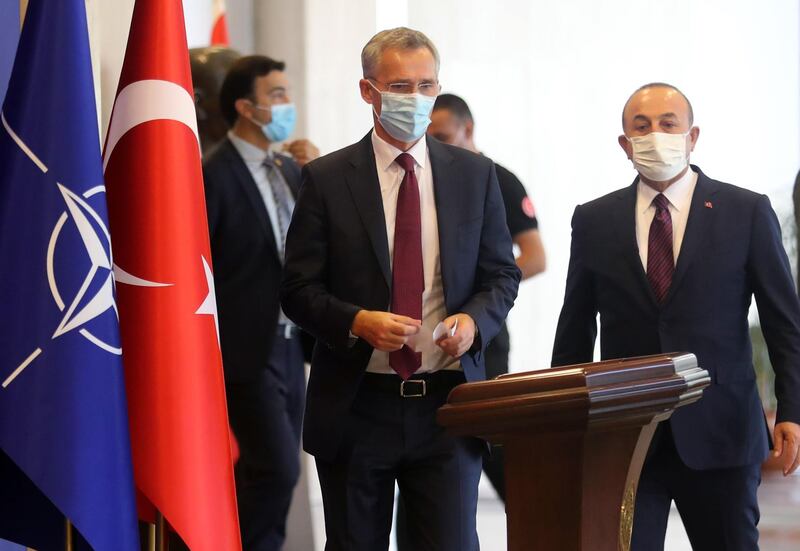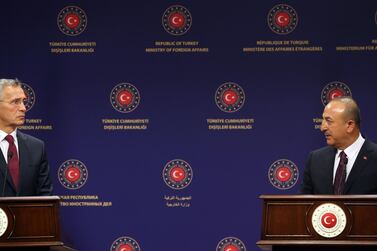When Nato Secretary General Jens Stoltenberg on Monday called for a ceasefire in Nagorno-Karabakh during a visit to Ankara, he highlighted the latest in a litany of topics that pit Turkey against its western allies.
The demand for a halt to fighting between Azerbaijani and Armenian forces, also made by Russia, has been rejected by Turkey, which backs Baku’s position that no truce is possible until separatist Armenian troops withdraw from the breakaway region.
The dispute is the most recent to sour ties between Turkey and other Nato members.
Over the summer, Turkey came into conflict with Greece and Cyprus over natural gas exploration in the Eastern Mediterranean.
EU states Greece and Cyprus complained that Ankara sending energy research vessels, accompanied by warships, inside their territorial waters was an aggressive and illegal act.
Turkey said the ships had been sent to areas within its continental shelf and it was protecting its rights as well as those of Turkish Cypriots on the ethnically divided island.
France and Italy also sent naval and air forces to the region to join the warships of Nato ally Greece for military exercises.
The French involvement compounded a fallout between Ankara and Paris over an arms embargo on Libya, where the two Nato allies back opposing sides in the civil war, although France denies involvement.
France withdrew from the Nato blockade after one of its ships was prevented from inspecting a vessel escorted by the Turkish navy, which Paris said had acted aggressively towards the French frigate.
Such episodes have added weight to claims that Turkey is drawing away from Nato, which it joined in 1952, and the West in general.
Last year’s purchase of a Russian S-400 missile system led to Ankara being kicked off the US-led programme to develop the F-35 stealth fighter, at a potential loss of billions of dollars to the Turkish defence industry.
The acquisition also raised the prospect of US sanctions. Despite calls from Congress for such measures, President Donald Trump has not imposed them.
Turkey is also at odds with its Nato allies over their support for Syrian Kurdish fighters linked to militants who have waged a 36-year insurgency inside Turkey.
This saw Ankara threaten to veto plans to defend Poland and the Baltic states from Russian attack at Nato’s London conference last year.
Meanwhile, Turkey’s involvement in Syria's conflict has led to further calls for sanctions and a reduction in the sale of military hardware to Turkey.







